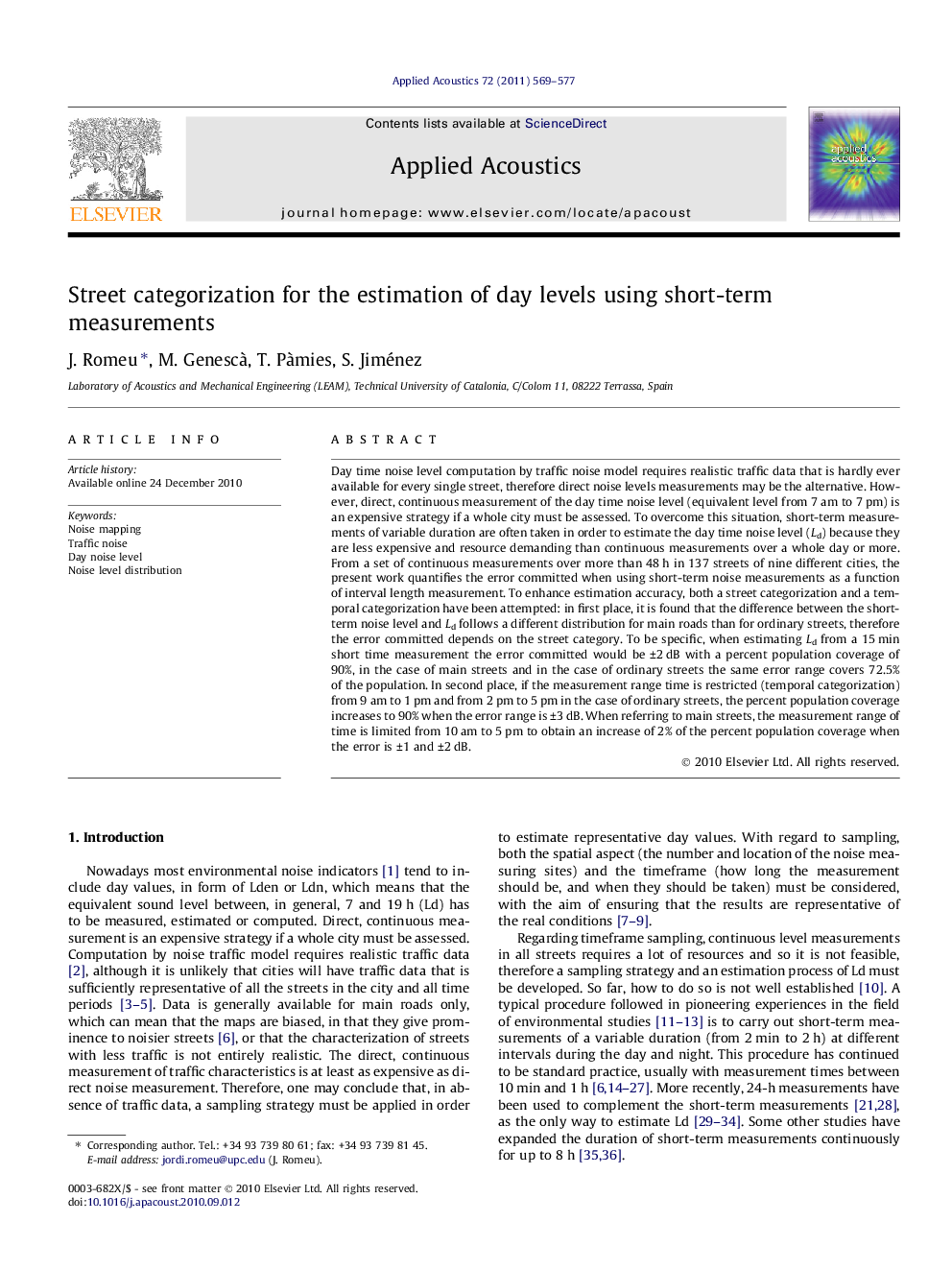| Article ID | Journal | Published Year | Pages | File Type |
|---|---|---|---|---|
| 753616 | Applied Acoustics | 2011 | 9 Pages |
Day time noise level computation by traffic noise model requires realistic traffic data that is hardly ever available for every single street, therefore direct noise levels measurements may be the alternative. However, direct, continuous measurement of the day time noise level (equivalent level from 7 am to 7 pm) is an expensive strategy if a whole city must be assessed. To overcome this situation, short-term measurements of variable duration are often taken in order to estimate the day time noise level (Ld) because they are less expensive and resource demanding than continuous measurements over a whole day or more. From a set of continuous measurements over more than 48 h in 137 streets of nine different cities, the present work quantifies the error committed when using short-term noise measurements as a function of interval length measurement. To enhance estimation accuracy, both a street categorization and a temporal categorization have been attempted: in first place, it is found that the difference between the short-term noise level and Ld follows a different distribution for main roads than for ordinary streets, therefore the error committed depends on the street category. To be specific, when estimating Ld from a 15 min short time measurement the error committed would be ±2 dB with a percent population coverage of 90%, in the case of main streets and in the case of ordinary streets the same error range covers 72.5% of the population. In second place, if the measurement range time is restricted (temporal categorization) from 9 am to 1 pm and from 2 pm to 5 pm in the case of ordinary streets, the percent population coverage increases to 90% when the error range is ±3 dB. When referring to main streets, the measurement range of time is limited from 10 am to 5 pm to obtain an increase of 2% of the percent population coverage when the error is ±1 and ±2 dB.
